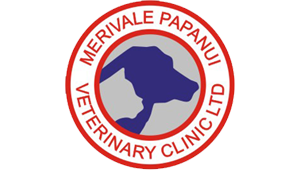Library
-
Carprofen is a nonsteroidal anti-inflammatory drug (NSAID) used on and off label. It is given by mouth in the form of a tablet to treat pain and inflammation. The most common side effects include vomiting, diarrhea, and decreased appetite. Do not use this medication in pets with bleeding disorders, in pets that are allergic to it or other NSAIDs in the same class, or in pets concurrently using corticosteroids or other NSAIDs. If a negative reaction occurs, call your veterinary office.
-
Carvedilol is a heart medication that may be prescribed off label in dogs, cats, guinea pigs, and turkeys for the treatment of heart conditions including abnormal heart beat frequencies (arrhythmias) and heart failure due to dilated cardiomyopathy (DCM).
-
Ceramides are naturally occurring lipid (fat) molecules that make up a large portion of the outer skin layer. Ceramide skin care products are available as over-the-counter veterinary products in various topical forms. They are used to help manage skin conditions in dogs, cats, and other animals. Your veterinarian is the best source of information about the safety of non-drug health products in pets.
-
Chloramphenicol (brand names Chloromycetin®, Viceton®) is a broad-spectrum antibiotic used to treat many different bacterial infections in many species. Chloramphenicol comes as tablets, capsules, liquid suspension, and in an injectable form (chloramphenicol sodium succinate). Injectable forms will be administered by your veterinarian.
-
Chlorpheniramine maleate is given by mouth and is used off label in cats, dogs, horses, ferrets, and birds to treat allergic conditions or as a mild sedative. Common side effects include sleepiness, although other side effects are possible.
-
Cisapride is used off label and is given by mouth to treat gastrointestinal motility disorders in cats, dogs, and small mammals. Common side effects include vomiting, diarrhea, and abdominal discomfort. Do not use in pets that are allergic to it or in pets with conditions that would be made worse by increased intestinal movement. If a negative reaction occurs, please call your veterinary office.
-
Deslorelin (brand name Suprelorin-F®) is a synthetic hormonal agent used to manage adrenocortical disease in ferrets. Deslorelin has also been used as a temporary contraceptive in intact male dogs or ferrets, to suppress estrus in small mammals, to decrease reproductive behavior in pet birds, and to induce ovulation in horses. Caution when handling if pregnant or child-bearing age.
-
Dexamethasone is given on and off label, by mouth or injection, to treat various inflammatory, autoimmune, and adrenal gland conditions. It can also be used off label as a diagnostic test. Common side effects include increased drinking, urination and/or appetite, dull/dry haircoat, weight gain, pot-bellied appearance, muscle weakness, panting, vomiting, or diarrhea.
-
Dexamethasone Otic is a steroid medication used in pets to treat topical inflammation of the ears, often with other medications such as antibiotics. It comes as a liquid solution that is prescribed for topical use within a pet’s ear canal. There are no veterinary brands of dexamethasone otic.
-
Dexmedetomidine is a sedative/tranquilizer used primarily in cats and dogs as a pre-medication injection for anesthesia or for chemical restraint. It is also used orally in dogs for short-term anxiety management. The most common side effect is a low heart rate. Dexmedetomidine should not be used in patients with severe heart liver or kidney disease. It should be used cautiously in young, old, or weak animals. Consult your veterinary office immediately if you suspect a negative reaction or overdose.
